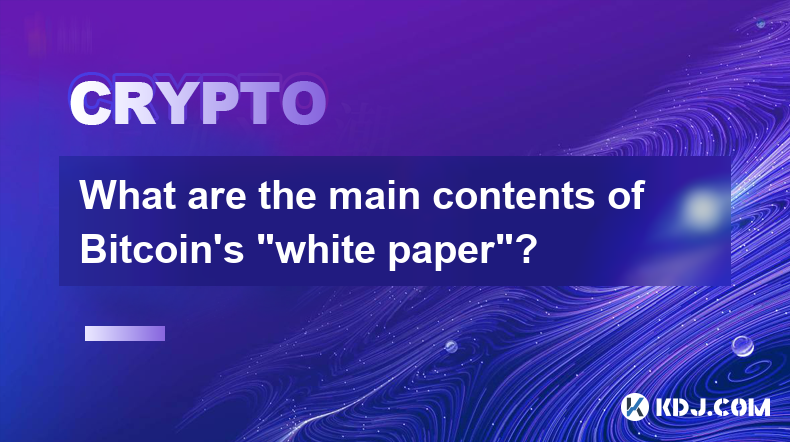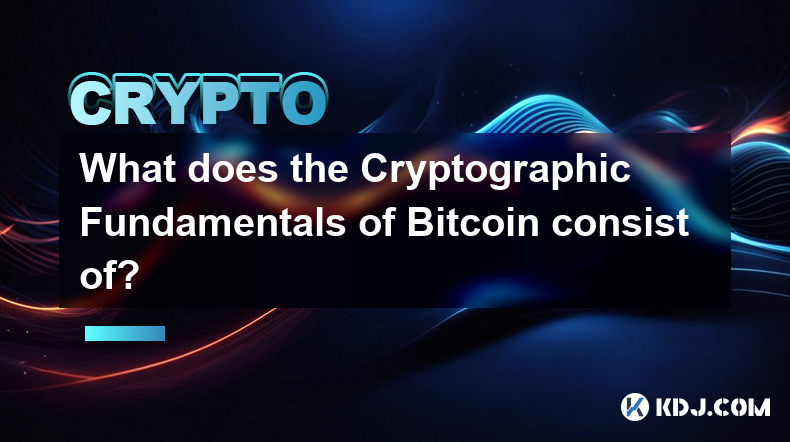-
 Bitcoin
Bitcoin $96,967.1185
-0.97% -
 Ethereum
Ethereum $2,671.8672
-2.29% -
 XRP
XRP $2.5695
-4.76% -
 Tether USDt
Tether USDt $1.0002
0.01% -
 BNB
BNB $645.6047
-1.25% -
 Solana
Solana $171.2167
-1.05% -
 USDC
USDC $1.0000
0.01% -
 Dogecoin
Dogecoin $0.2462
-2.20% -
 Cardano
Cardano $0.7733
-3.19% -
 TRON
TRON $0.2391
-2.12% -
 Chainlink
Chainlink $17.7376
-2.28% -
 Sui
Sui $3.3727
-1.65% -
 Avalanche
Avalanche $24.6569
-0.32% -
 Stellar
Stellar $0.3296
-5.06% -
 Litecoin
Litecoin $130.0046
2.52% -
 Toncoin
Toncoin $3.6504
1.46% -
 Shiba Inu
Shiba Inu $0.0...01532
-0.97% -
 UNUS SED LEO
UNUS SED LEO $9.6755
-0.52% -
 Hedera
Hedera $0.2125
-2.94% -
 Hyperliquid
Hyperliquid $24.8232
0.91% -
 Polkadot
Polkadot $5.1674
3.43% -
 MANTRA
MANTRA $7.5034
-0.01% -
 Bitcoin Cash
Bitcoin Cash $320.8281
-0.64% -
 Ethena USDe
Ethena USDe $0.9978
-0.18% -
 Bitget Token
Bitget Token $4.7462
4.95% -
 Uniswap
Uniswap $8.9431
-4.59% -
 Dai
Dai $0.9997
-0.07% -
 Monero
Monero $228.7110
-0.47% -
 NEAR Protocol
NEAR Protocol $3.3985
0.84% -
 Pepe
Pepe $0.0...09371
-0.86%
Where can I find the best staking pool for Telos (TLOS) coins?
Telos's DPoS consensus mechanism and staking process allow TLOS holders to generate passive income while contributing to the network's security and stability.
Dec 20, 2024 at 10:44 pm

Key Points:
- Telos Consensus Model and Staking Importance
- Comparison of Top Staking Pools
- Selection Criteria for Telos Staking Pools
- Rewards, Fees, and Lockup Periods
- Security and Reliability of Staking Pools
Where can I find the best staking pool for Telos (TLOS) coins?
1. Telos Consensus Model and Staking Importance
Telos blockchain employs a Delegated Proof-of-Stake (DPoS) consensus mechanism. In this model, TLOS coin holders can vote to appoint block validators known as Block Producers (BPs). In return for securing the network, BPs receive staking rewards. This process not only generates passive income for participants but also contributes to the network's security and stability.
2. Comparison of Top Staking Pools
- Everstake: A well-established staking pool with a proven track record of reliability and security. Everstake operates multiple nodes to minimize downtime and increase yield. It charges a 5% commission and offers various lockup periods ranging from flexible to 365 days.
- Cre Reputation: A reputable staking pool known for its active participation in the Telos community. Cre Reputation holds a large stake, ensuring stability and maximizing rewards for its delegators. It charges a 10% commission but provides flexible lockup options.
- HashQuark: A leading staking provider with a global presence. HashQuark operates a robust infrastructure to ensure minimal downtime and optimal rewards. Its commission rate is set at 9%, and it offers customizable lockup periods to suit investors' preferences.
- Block.one: The founding organization of Telos and a prominent blockchain developer. Block.one operates its own BP node and provides staking services to its community. It stands out with a 0% commission on staking rewards, but has a minimum delegation requirement.
3. Selection Criteria for Telos Staking Pools
- Security: Assess the security measures implemented by the pool, including node redundancy, infrastructure reliability, and industry accreditations.
- Fees and Lockup: Consider the commission rates charged by the pool and the lockup periods offered. Longer lockup periods typically yield higher rewards.
- Reputation: Research the track record and reputation of the pool in the community. Look for reviews and feedback from previous delegators.
- Node Performance: Check the historical performance of the pool's nodes in terms of uptime, block production, and transaction speed.
- Community Involvement: Consider pools that actively participate in the Telos community, supporting its growth and initiatives.
4. Rewards, Fees, and Lockup Periods
- Rewards: Calculate the potential rewards based on the pool's historical performance, current block production, and your stake size.
- Fees: Factor in the commission rates charged by the pool and the associated fees for delegation.
- Lockup Periods: Determine the most suitable lockup period that aligns with your investment strategy. Longer lockup periods generally result in higher rewards but reduced flexibility.
5. Security and Reliability of Staking Pools
- Node Redundancy: Ensure the pool operates multiple nodes to minimize downtime and increase network stability.
- Infrastructure Stability: Assess the pool's server infrastructure, uptime guarantees, and measures to prevent outages.
- Industry Accreditations: Check if the pool holds security certifications or follows industry best practices.
- Transparency: Review the pool's communication channels, financial reporting, and community engagement to ensure transparency in its operations.
- Insurance Coverage: Consider pools that provide insurance coverage for delegated funds to protect against potential losses.
FAQs Related to Telos Staking Pools
Q: What is the minimum amount of TLOS required to stake?
A: Each staking pool typically sets its own minimum delegation requirement, which may vary.
Q: Is it possible to participate in multiple staking pools with the same TLOS?
A: Yes, you can spread your delegation across different pools to diversify your risk profile. However, it is important to consider the lockup periods and fees of each pool.
Q: How do I track my staking rewards?
A: You can monitor your rewards through the Telos Explorer or by using block explorers provided by the staking pool.
Q: Is it safe to stake TLOS long-term?
A: Staking with a reputable and secure pool is generally considered a safe investment for long-term holders who seek passive income. However, it's important to remember the inherent risks associated with cryptocurrencies and to only invest what you can afford to lose.
Q: How do I choose the right staking pool for my needs?
A: Follow the selection criteria outlined above and carefully consider the security, fees, reputation, node performance, and community involvement of each pool before making a decision.
Disclaimer:info@kdj.com
The information provided is not trading advice. kdj.com does not assume any responsibility for any investments made based on the information provided in this article. Cryptocurrencies are highly volatile and it is highly recommended that you invest with caution after thorough research!
If you believe that the content used on this website infringes your copyright, please contact us immediately (info@kdj.com) and we will delete it promptly.
- Ethereum (ETH) vs. IntelMarkets (INTL): Can This New AI-Based Crypto Disrupt the ETH Price in Q2 2025?
- 2025-02-22 01:35:24
- Kanye West's YZY Token May Be Coming This Month, Polymarket Bettors Wager $11M
- 2025-02-22 01:35:24
- Ethereum (ETH) Price Shows Stronger Momentum Than Bitcoin (BTC)
- 2025-02-22 01:35:24
- Pi Network Crashes 50% After Mainnet Launch, Top Rivals to Consider
- 2025-02-22 01:35:24
- Bitcoin Pepe: The 'ETH Killer' Nobody Saw Coming
- 2025-02-22 01:35:24
- XRP May Have a New Catalyst That Could Push Its Price Higher Following the Ongoing Consolidation Phase
- 2025-02-22 01:35:24
Related knowledge

What are the main contents of Bitcoin's "white paper"?
Feb 21,2025 at 04:36am
Key Points:Understanding Bitcoin's Genesis: The White Paper's IntroductionA Decentralized Digital Currency: Bitcoin's Core ConceptBlockchain Technology: The Foundation of Bitcoin's Immutable LedgerProof-of-Work: Securing Bitcoin's NetworkThe Design of Bitcoin's Currency: Issuance, Scarcity, and DivisibilityBitcoin's Potential Applications and Future Pro...

What does the Cryptographic Fundamentals of Bitcoin consist of?
Feb 21,2025 at 12:06pm
Key PointsUnderstanding the cryptographic algorithms used in BitcoinFamiliarization with the Bitcoin blockchain and its underlying mechanicsExamination of the security measures that protect Bitcoin from attackAnalysis of the decentralized nature of Bitcoin and its implicationsDiscussion of the scalability and transaction fee issues associated with Bitco...

How do Bitcoin mining pools work?
Feb 21,2025 at 09:07pm
Key Points of Bitcoin Mining Pools:Understanding Bitcoin Mining PoolsSteps to Join a Bitcoin Mining PoolChoosing the Right Mining PoolBenefits and Considerations of Mining PoolsHow do Bitcoin mining pools work?Understanding Bitcoin Mining PoolsBitcoin mining pools are distributed networks of mining participants who combine their computing power to solve...

What role does Bitcoin's hash function play in the system?
Feb 21,2025 at 09:06am
Key PointsSecure Data Storage: The hash function safeguards data within Bitcoin's blockchain, ensuring its immutability and integrity.Transaction Verification: The hash function plays a crucial role in verifying transactions and maintaining the network's consensus.Security against Double-Spending: The hash function helps prevent double-spending by crypt...

What is the initial purchase and transaction process for Bitcoin?
Feb 20,2025 at 01:00pm
Key Points:Understanding the concept of BitcoinCreating a Bitcoin walletFunding your Bitcoin walletPurchasing Bitcoin through an exchangeConfirming and receiving BitcoinInitial Purchase and Transaction Process for Bitcoin1. Understanding BitcoinBitcoin is a decentralized digital currency created in 2009 by an unknown individual or group using the pseudo...

What are Bitcoin's Layer 2 solutions?
Feb 20,2025 at 01:18pm
Key Points:Understanding Bitcoin's transaction limitationsScaling solutions for Bitcoin: Layer 2 protocolsBenefits of Layer 2 solutionsPopular Layer 2 solutions for BitcoinWhat are Bitcoin's Layer 2 Solutions?Bitcoin, the pioneering cryptocurrency, has played a pivotal role in shaping the decentralized finance landscape. However, it faces the persistent...

What are the main contents of Bitcoin's "white paper"?
Feb 21,2025 at 04:36am
Key Points:Understanding Bitcoin's Genesis: The White Paper's IntroductionA Decentralized Digital Currency: Bitcoin's Core ConceptBlockchain Technology: The Foundation of Bitcoin's Immutable LedgerProof-of-Work: Securing Bitcoin's NetworkThe Design of Bitcoin's Currency: Issuance, Scarcity, and DivisibilityBitcoin's Potential Applications and Future Pro...

What does the Cryptographic Fundamentals of Bitcoin consist of?
Feb 21,2025 at 12:06pm
Key PointsUnderstanding the cryptographic algorithms used in BitcoinFamiliarization with the Bitcoin blockchain and its underlying mechanicsExamination of the security measures that protect Bitcoin from attackAnalysis of the decentralized nature of Bitcoin and its implicationsDiscussion of the scalability and transaction fee issues associated with Bitco...

How do Bitcoin mining pools work?
Feb 21,2025 at 09:07pm
Key Points of Bitcoin Mining Pools:Understanding Bitcoin Mining PoolsSteps to Join a Bitcoin Mining PoolChoosing the Right Mining PoolBenefits and Considerations of Mining PoolsHow do Bitcoin mining pools work?Understanding Bitcoin Mining PoolsBitcoin mining pools are distributed networks of mining participants who combine their computing power to solve...

What role does Bitcoin's hash function play in the system?
Feb 21,2025 at 09:06am
Key PointsSecure Data Storage: The hash function safeguards data within Bitcoin's blockchain, ensuring its immutability and integrity.Transaction Verification: The hash function plays a crucial role in verifying transactions and maintaining the network's consensus.Security against Double-Spending: The hash function helps prevent double-spending by crypt...

What is the initial purchase and transaction process for Bitcoin?
Feb 20,2025 at 01:00pm
Key Points:Understanding the concept of BitcoinCreating a Bitcoin walletFunding your Bitcoin walletPurchasing Bitcoin through an exchangeConfirming and receiving BitcoinInitial Purchase and Transaction Process for Bitcoin1. Understanding BitcoinBitcoin is a decentralized digital currency created in 2009 by an unknown individual or group using the pseudo...

What are Bitcoin's Layer 2 solutions?
Feb 20,2025 at 01:18pm
Key Points:Understanding Bitcoin's transaction limitationsScaling solutions for Bitcoin: Layer 2 protocolsBenefits of Layer 2 solutionsPopular Layer 2 solutions for BitcoinWhat are Bitcoin's Layer 2 Solutions?Bitcoin, the pioneering cryptocurrency, has played a pivotal role in shaping the decentralized finance landscape. However, it faces the persistent...
See all articles





















































































